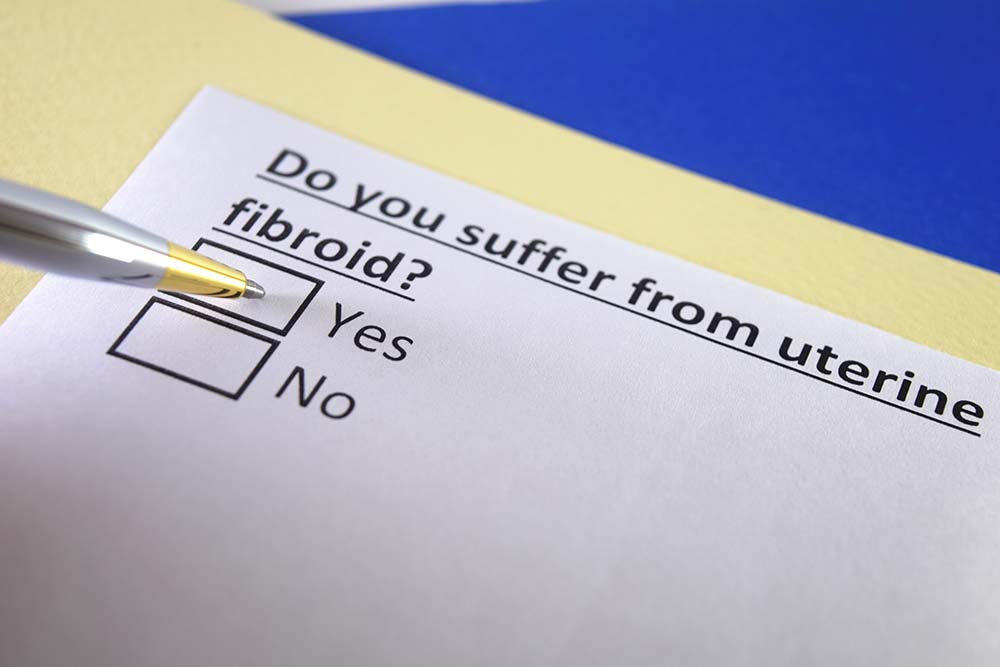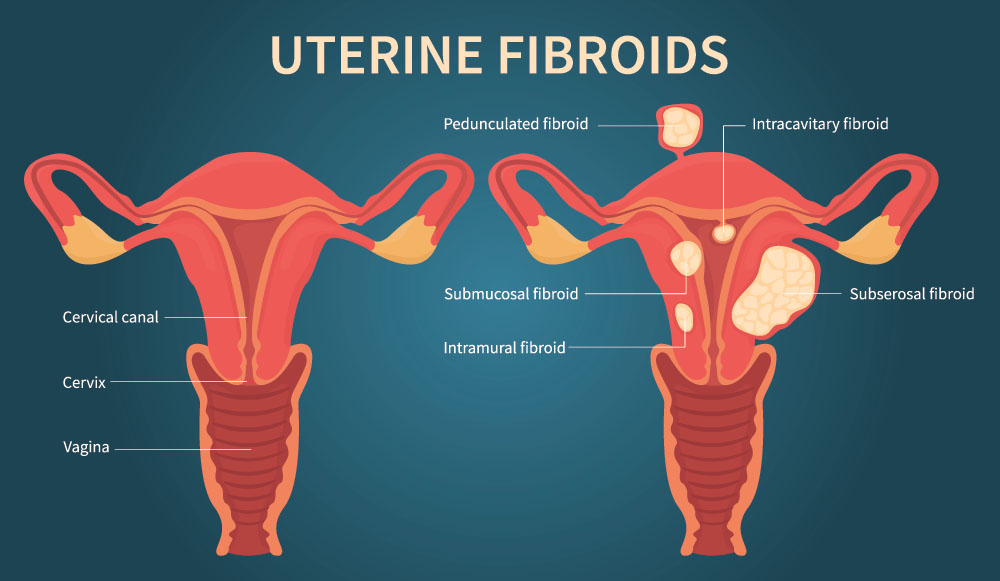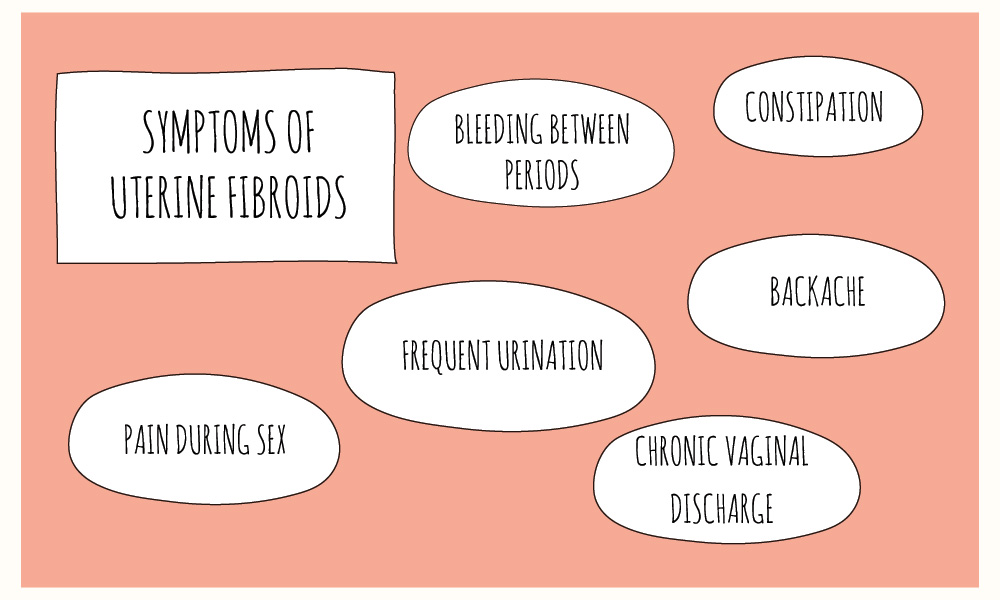It was mid-2018 when I first experienced symptoms that women living with reproductive health issues across India and the world do. The abdominal pain was crippling, the menstrual flow kept recurring every two weeks, the mood swings were quite bad, and I was exhausted and anaemic all the time. Two months of dedicated pursuit of gynaecologists, multiple hormone tests and ultrasounds later, I knew the cause of all my woes. I had uterine fibroids, which are non-cancerous tumours that often grow in or on the uteruses of women of “childbearing age”.
I immediately revealed my diagnosis to my father, and that’s when I discovered that my paternal grandmother had also suffered from uterine fibroids. For me, my grandmother Jayanti Goswami, born in 1931 in a nationalist family at the heart of the freedom struggle in Bengal, always came across as the quietly adoring woman from whom I had inherited my height, my hairline and hair, and a bit of a temper. Now at the age of 30, I had discovered that as her direct and only female descendant, I had inherited a bit more than that. Here’s everything that moment, and every moment I’ve lived since, taught me especially about my freedom of choice and my right to healthcare.
Lack Of Knowledge Takes Away My Rights
While the exact causes of uterine fibroids are not known, doctors and researchers believe that it could be because of family history, obesity or early onset of puberty. Given the fact that I am my paternal grandma’s only female descendant, the family history part made absolute sense. What didn’t was the silence around it. As her only granddaughter, I had seen my grandma opening up to me about so much, from rituals that matter to having hair that doesn’t grey very easily.
And yet, something as critical as reproductive health and a disease that had plagued her for decades went unspoken about, as if it was not something that mattered. The magnitude of this silence was immense, because it’s this very reluctance to talk about diseases in the family that takes away our right to make our own choices. How? Well, today, if a female descendant of a woman with breast cancer learns about the risk factors, they can actively choose to alter their lifestyle, learn more about preventative treatments (like Angelina Jolie did when she learned she had inherited the BRCA1 gene), and take action in any way they want to.
The same goes for all diseases which have a high risk of being passed down, whether it’s diabetes and asthma or breast cancer or fibroids. My grandma—and in fact, my entire paternal family—not disclosing any details about her experience with fibroids put me at risk and at a disadvantage by taking away my right to make my own health and lifestyle choices.

Making A Medical History Is Key
And that’s when I decided to take matters into my own hands, and quizzed my father so that I could make a complete medical history for my reference—and for any other female descendants my grandma has in the future. I learned that my grandma had been diagnosed with fibroids at around the age of 32-33 (which parallels roughly with my own age of diagnosis), and had to get a complete hysterectomy (the surgical removal of the uterus) done at the very young age of 35. I learned that she had undergone some treatment for the issue preceding the hysterectomy, but the details are completely unknown to any member of my family because of course women’s health issues have to be kept hush-hush. This assessment of her medical history empowers mine, because it gives me a correlative data set to compare with. It helps me understand the possible courses of action I can take, medically, and what their impact on my life will be.

Sharing Women’s Health Issues With Men Matters
The secrecy around my grandma’s experience with fibroids now bothers both me and my father. He shared recently how all my uncle and he were told was that my grandma had some “meyeder samasya” (feminine issues in Bengali), and there was no other discussion at home about the issue. Not sharing with the men of the family isolated my grandma and certainly amplified her suffering. To remedy any such dilemma in our lives, my father has always asked my mother and I to be open about the health issues we face, no matter how small the cut or how little the pain. Today, when I can openly share the fact that I have immense body ache around my periods with my father, brother and life partner, I do feel privileged—and they feel included enough to be in touch with their own sensitive, empathetic sides. Lesson learned, for all of us!
Our Generation Has More Treatment Options
This is an undeniable fact, and we all know it. For my grandma’s generation, and even the generation after that, a complete hysterectomy where even the ovaries were removed (making the woman prematurely sterile) was considered to be the sole solution. But a surgical procedure of this gravity has side effects too. My grandma, my father recalls, was bed-ridden for a week, and started experiencing severe hormonal imbalance after that. Following the procedure, she also started falling ill more frequently, with dementia showing up in her late 70s.
Thankfully, nowadays, we have access to surgical procedures like uterine myomectomy, which targets just the fibroids in the uterus by cutting off the blood supply to them. The rest of the uterus, ovaries and fallopian tubes remain preserved, which does protect us from severe hormonal imbalances, while also keeping us fertile and empowered with the right to reproduce (if we want to). Are we privileged? Yes of course we are, compared to women like my grandma, and I for one am thankful to these amazing advancements in medical science.

Rest And Self-Care Should Never Be Underestimated
My father still laments the fact that my grandma needed at least a month’s rest to recover and heal after her hysterectomy, but wasn’t given the option or right to get that much-needed rest. For most women from her generation and background, nurturing the family at the cost of oneself was the priority, so after a week or two of rest, she was back running the household and kitchen to feed and care for a large family. Would she have saved herself from future illnesses if she had rested up and focused on herself back then? I believe yes, she would have. Which is why the biggest lesson I’ve learned from this reluctant inheritance of fibroids from my grandma, is to prioritise my own health. I know that if I don’t help myself, I will not be in any position to help anybody else around me no matter how great my intentions or how immense my love for them.